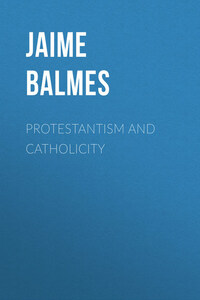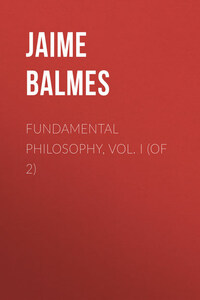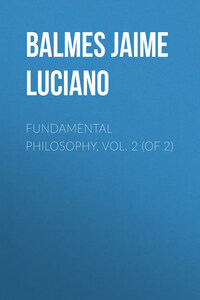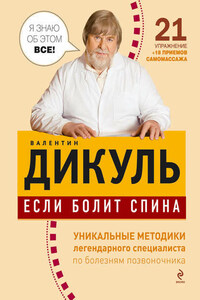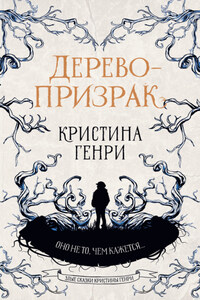Among the many and important evils which have been the necessary result of the profound revolutions of modern times, there appears a good extremely valuable to science, and which will probably have a beneficial influence on the human race, – I mean the love of studies having for their object man and society. The shocks have been so rude, that the earth has, as it were, opened under our feet; and the human mind, which, full of pride and haughtiness, but lately advanced on a triumphal car amid acclamations and cries of victory, has been alarmed and stopped in its career. Absorbed by an important thought, overcome by a profound reflection, it has asked itself, "What am I? whence do I come? what is my destination?" Religious questions have regained their high importance; and when they might have been supposed to have been scattered by the breath of indifference, or almost annihilated by the astonishing development of material interests, by the progress of the natural and exact sciences, by the continually increasing ardour of political debates, – we have seen that, so far from having been stifled by the immense weight which seemed to have overwhelmed them, they have reappeared on a sudden in all their magnitude, in their gigantic form, predominant over society, and reaching from the heavens to the abyss.
This disposition of men's minds naturally drew their attention to the religious revolution of the sixteenth century; it was natural that they should ask what this revolution had done to promote the interests of humanity. Unhappily, great mistakes have been made in this inquiry. Either because they have looked at the facts through the distorted medium of sectarian prejudice, or because they have only considered them superficially, men have arrived at the conclusion, that the reformers of the sixteenth century conferred a signal benefit on the nations of Europe, by contributing to the development of science, of the arts, of human liberty, and of every thing which is comprised in the word civilization.
What do history and philosophy say on this subject? How has man, either individually or collectively, considered in a religious, social, political, or literary point of view, been benefited by the reform of the sixteenth century? Did Europe, under the exclusive influence of Catholicity, pursue a prosperous career? Did Catholicity impose a single fetter on the movements of civilization? This is the examination which I propose to make in this work. Every age has its peculiar wants; and it is much to be wished that all Catholic writers were convinced, that the complete examination of these questions is one of the most urgent necessities of the times in which we live. Bellarmine and Bossuet have done what was required for their times; we ought to do the same for ours. I am fully aware of the immense extent of the questions I have adverted to, and I do not flatter myself that I shall be able to elucidate them as they deserve; but, however this may be, I promise to enter on my task with the courage which is inspired by a love of truth; and when my strength shall be exhausted, I shall sit down with tranquillity of mind, in expectation that another, more vigorous than myself, will carry into effect so important an enterprise.
PREFACE TO THE AMERICAN EDITION
The work of Balmes on the comparative influence of Protestantism and Catholicity on European civilization, which is now presented to the American public, was written in Spanish, and won for the author among his own countrymen a very high reputation. A French edition was published simultaneously with the Spanish, and the work has since been translated into the Italian and English languages, and been widely circulated as one of the most learned productions of the age, and most admirably suited to the exigencies of our times. When Protestantism could no longer maintain its position in the field of theology, compelling its votaries by its endless variations to espouse open infidelity, or to fall back upon the ancient church, it adopted a new mode of defence, in pointing to its pretended achievements as the liberator of the human mind, the friend of civil and religious freedom, the patron of science and the arts; in a word, the active element in all social ameliorations. This is the cherished idea and boasted argument of those who attempt to uphold Protestantism as a system. They claim for it the merit of having freed the intellect of man from a degrading bondage, given a nobler impulse to enterprise and industry, and sown in every direction the seed of national and individual prosperity. Looking at facts superficially, or through the distorted medium of prejudice, they tell us that the reformers of the 16th century contributed much to the development of science and the arts, of human liberty, and of every thing which is comprised in the word civilization. To combat this delusion, so well calculated to ensnare the minds of men in this materialistic and utilitarian age, the author undertook the work, a translation of which is here presented to the public. "What do history and philosophy say on this subject? How has man, either individually or collectively, considered in a religious, social, political, or literary point of view, been benefited by the reform of the 16th century? Did Europe, under the exclusive influence of Catholicity, pursue a prosperous career? Did Catholicity impose a single fetter on the movements of civilization?" Such is the important investigation which the author proposed to himself, and it must be admitted that he has accomplished his task with the most brilliant success? Possessed of a penetrating mind, cultivated by profound study and adorned with the most varied erudition, and guided by a fearless love of truth, he traverses the whole Christian era, comparing the gigantic achievements of Catholicity, in curing the evils of mankind, elevating human nature, and diffusing light and happiness, with the results of which Protestantism may boast; and he proves, with the torch of history and philosophy in his hand, that the latter, far from having exerted any beneficial influence upon society, has retarded the great work of civilization which Catholicity commenced, and which was advancing so prosperously under her auspicious guidance. He does not say that nothing has been done for civilization by
